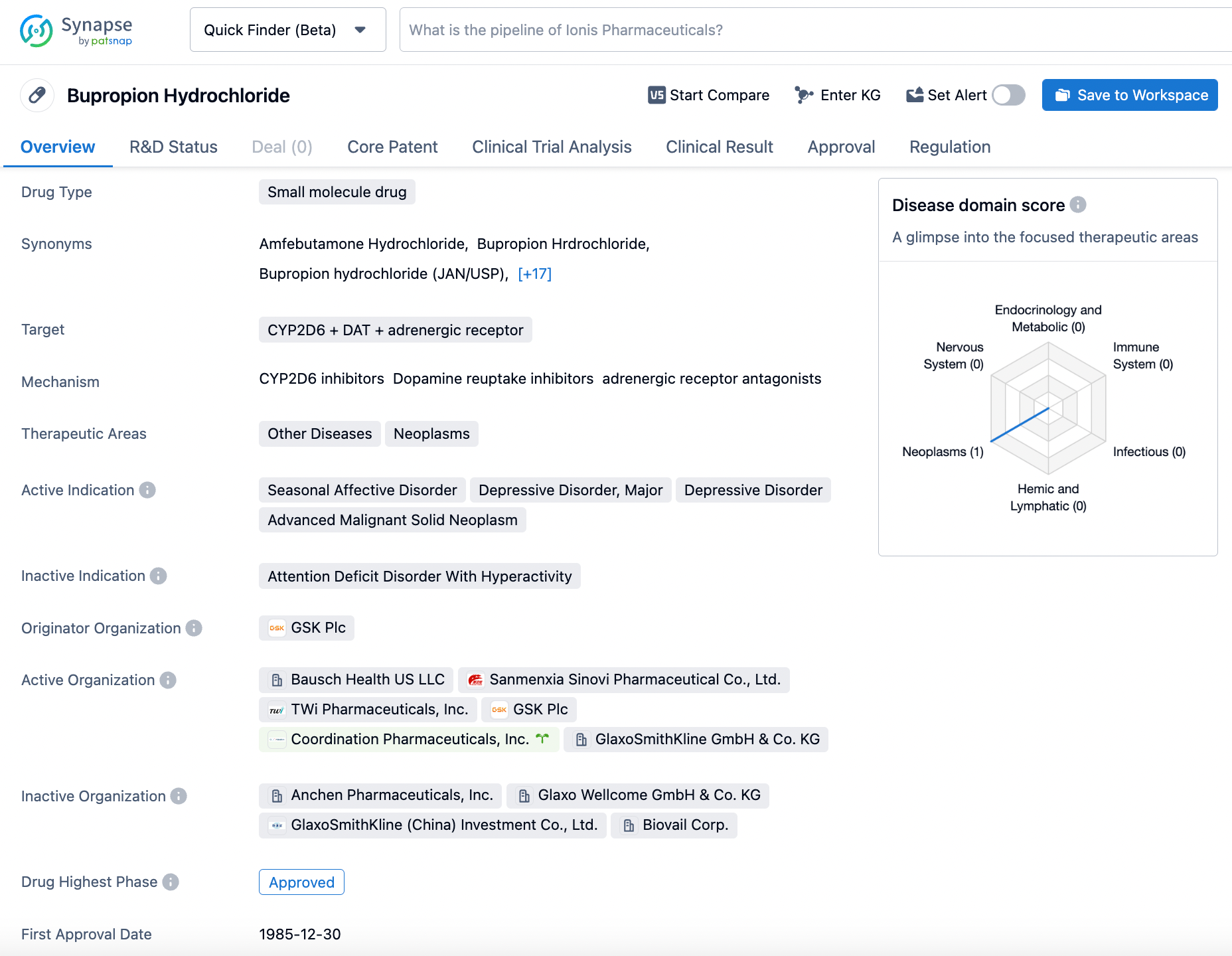Your Ultimate Guide to Finding Bupropion on Synapse
Bupropion Hydrochloride, a molecule of minuscule proportions, is a drug that performs a multi-target function, with receptors and enzymes among its targets, such as the dopamine transporter (DAT), adrenergic receptor, and CYP2D6. Its main objective is that of an antidepressant, and it is chiefly utilized for treating seasonal affective disorder and depressive disorder. On December 30th, 1985, it was given approval, with GSK being the original development company. Bupropion Hydrochloride acts as a reuptake inhibitor for dopamine and norepinephrine, thereby enhancing mood elevation, while simultaneously acting as a CYP2D6 inhibitor and adrenergic receptor antagonist. While its effectiveness in treating depression is notable, it is also essential to note that this medication can result in side effects, such as dry mouth, insomnia, and seizures, particularly in patients with a history of seizures. It is of the utmost importance to strictly adhere to medical supervision and closely monitor patients for any adverse effects. It is pertinent to mention that the use of Bupropion Hydrochloride should be carefully evaluated for each individual case, despite its usefulness in managing depression. Click on the image below to begin the exploration journey of Bupropion through the Synapse database!
You can search for the latest pharmaceutical information such as drugs, targets, patents, transactions, clinical results, etc. through the Synapse database. Come and experience it!





